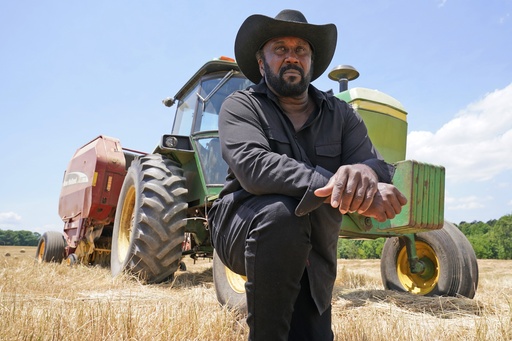President Biden announced on Wednesday that the Biden administration has distributed over $2 billion in direct payments to Black and other minority farmers who faced discrimination from the U.S. Department of Agriculture. More than 23,000 farmers received payments ranging from $10,000 to $500,000, while an additional 20,000 individuals who aspired to start a farm but were denied USDA loans were granted between $3,500 and $6,000.
Most of the payments were allocated to farmers in Mississippi and Alabama. USDA Secretary Tom Vilsack emphasized that the aid is not meant to compensate for the losses or pain endured by the farmers but is rather an acknowledgment by the department regarding the discrimination that occurred in the past.
The USDA has a history of denying loans to Black farmers, providing smaller loans compared to white farmers, and hastening foreclosures when Black farmers faced difficulties with their loans. John Boyd Jr., Founder and President of the National Black Farmers Association, expressed gratitude for the aid but stressed that it is insufficient. He likened it to applying a bandage to someone in need of open-heart surgery, emphasizing that the ultimate goal is for Black farmers to regain ownership of their land.
Boyd continues to advocate for a federal lawsuit requesting 120% debt relief for Black farmers, a measure that was approved by Congress in 2021 but never materialized due to legal challenges from white farmers in various states. Consequently, Congress amended the law to provide financial assistance to a broader group of farmers, allocating $3.1 billion to assist those struggling with USDA-backed loans and $2.2 billion to compensate farmers who experienced discrimination from the agency.
Wardell Carter, a Black farmer from Mississippi, recounted the systemic discrimination his family faced, including being denied loan applications since his father purchased land in 1939. Carter shared instances where USDA loan officers would reject applications and, in some cases, involve law enforcement if Black farmers persisted. These discriminatory practices impeded the Carter family’s ability to access proper equipment, limiting their farming capacity and profitability.
Despite encountering racial epithets and disrespectful treatment during loan meetings, Boyd and Carter remain steadfast in their pursuit of justice and equality for Black farmers. Carter, now 65, expressed hope that the USDA program’s financial assistance would allow his family to nurture the next generation’s farming endeavors on their land by providing resources like tractors. Through these efforts, they aim to rectify past injustices and ensure a brighter future for Black farmers in the agricultural sector.



